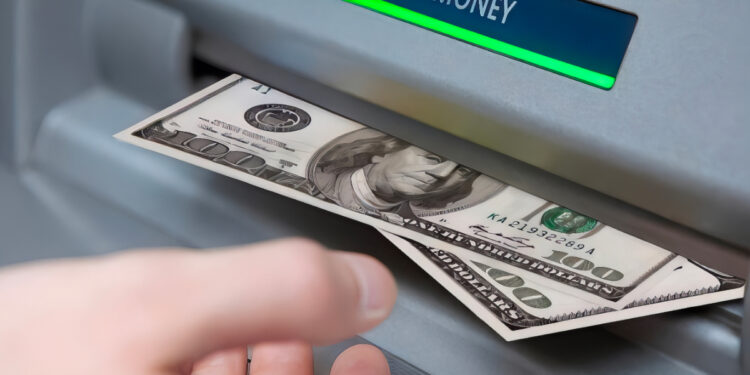Egyptian banks have imposed increasingly strict limits on debit and credit card use abroad to contain foreign currency outflows. What began as temporary measures in 2016 has evolved into near-total bans on international debit usage by 2025—with strict monthly caps even on credit cards. Here’s how Egypt got here, and what cardholders can still do today.
Why Banks Are Blocking Cards Abroad
The Central Bank of Egypt (CBE) instructed banks operating in Egypt to restrict customers from using credit and debit cards for transactions with merchants based outside of Egypt (cross-border) in October 2023. The aim is to prioritize foreign exchange allocations for critical imports and reduce pressure on Egypt’s limited reserves. The central bank said the move comes after it observed “speculators misusing these cards by making cash withdrawals from abroad without actually traveling”.
These restrictions have affected both consumers and businesses—especially those relying on international purchases, subscriptions, or travel. The measures are part of Egypt’s broader strategy to preserve foreign currency reserves amid ongoing economic challenges.
From Devaluation to Debit Blocks: A Timeline
📉 2016: Currency Float Sparks Initial Controls
Exchange Rate Impact: The dramatic currency devaluation of November 2016 fundamentally changed Egypt’s banking landscape. Before the float, the rate was maintained around 8.8 EGP per USD. After the November 3, 2016 announcement, the pound immediately jumped to about 15 EGP per USD, eventually reaching 19.64 EGP per USD by December 20, 2016—a staggering 130% devaluation in just two months.
Following this massive floatation of the Egyptian pound, banks introduced spending caps on foreign transactions. At the time, customers could still use their cards abroad, but with monthly USD-equivalent limits.
📈 2017–2021: Relative Stability Period
Exchange Rate Trend: After the initial shock, the Egyptian pound found relative stability. The rate gradually settled around 15–18 EGP per USD through most of this period. During these years, international card usage remained largely functional with moderate restrictions.
🔒 October 2022: A Second Wave of Tightening
Exchange Rate Context: By 2022, global economic pressures and Egypt’s growing foreign currency shortage began putting renewed pressure on the pound. Banks like CIB, Banque Misr, and QNB began capping foreign spending again.
The Commercial International Bank approved monthly limits on cash withdrawals abroad for debit cards that range from EGP 5,000 to EGP 300,000, depending on the type of card. It also set a ceiling for international monthly purchases, whether in-person or online, between EGP 20,000 and EGP 200,000.
📉 2023: Further Devaluation and Restrictions
Exchange Rate Pressure: 2023 saw significant currency pressure with the USD/EGP exchange rate starting the year at 27.55, rising to 30.23 by February, and ending the year at 30.93 EGP per USD—a 25% devaluation for the year.
🚫 October 2023: Major Restrictions Implemented
By October 2023, most major banks had implemented comprehensive restrictions. HSBC Egypt suspended foreign currency transactions on debit cards starting October 24, 2023, while customers could continue transacting in Egyptian Pounds. Banks began declining all cross-border debit card transactions and introduced strict monthly caps or blocked credit card FX use altogether.
What Credit Cards Can (and Can’t) Do in 2025
While debit cards remain largely disabled for international transactions in 2025, credit cards are still usable in foreign currencies—but only under strict conditions.
Travel Documentation Requirements
Credit cardholders are required to notify their bank within 3 working days before travel to activate foreign currency limits. Documentation must include passport departure/arrival stamps, and if the trip exceeds 90 days, proof of continued stay abroad.
Current Spending Limits by Bank
HSBC Egypt:
– Default limit: EGP 100,000/month (~$250)
– Higher limits available with verified travel documents
National Bank of Egypt (NBE):
– Max $250/month for customers in Egypt who haven’t submitted travel proof
Banque du Caire:
– International limits disabled for 2 months after card issuance (starting December 26, 2023)
Important Restrictions
Banks have also blocked credit card use at certain merchants—such as online wallet services and high-risk categories like gold and electronics. All foreign usage must be linked to documented travel or specific business needs.
Economic Context: Exchange Rate and IMF Program
2024 Major Devaluation
Egypt’s exchange rate moved from 30.93 EGP per USD at end-2023 to 50.83 by end-2024—a 64% devaluation in one year. This rapid decline triggered the current wave of capital control enforcement.
2025 Stabilization Efforts
By July 11, 2025, the rate settled at 49.49 EGP per USD, with the pound gaining 0.56% over the previous month but still down 3.21% over 12 months. The rate fluctuated between 49.25 and 51.66 during Q2 2025, showing signs of near-term stability.
IMF Program Progress
In March 2025, the IMF completed its fourth review, releasing $1.2B in new funds and bringing total access under the Extended Fund Facility to $3.2B. A $1.3B agreement under the Resilience and Sustainability Facility was also approved.
Despite progress, Egypt continues to face external shocks. Red Sea trade disruptions since December 2023 reduced Suez Canal revenues by $6B in 2024 alone.
How Egyptians Are Adapting
Consumers are shifting to gift cards, offshore accounts, or support from relatives abroad to maintain digital purchases. Many digital workers now operate through international partners or foreign-registered entities to bypass FX barriers.
Travel Preparations
Before traveling, users must activate international credit card use via branch visit or phone call. After the trip, proof must be submitted within 90 days or the card may be blocked.
What Lies Ahead
Since 2016, the Egyptian pound has devalued nearly 600%—from 8.8 EGP/USD to over 50 in 2025. The severity of FX card restrictions directly reflects this macroeconomic shock.
While the IMF program is providing temporary relief, sustained recovery depends on long-term reforms: tax modernization, increased private sector participation, FX liberalization, and public transparency. Until those conditions materialize, these FX card limits are likely to remain in place.
This article has been updated with current data as of July 2025. For the latest information on specific bank policies, contact your financial institution directly.











